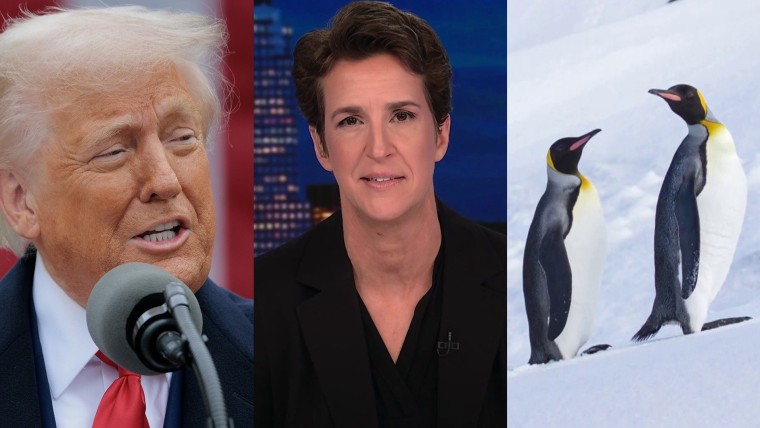Donald Trump’s highly anticipated remarks on his administration’s trade tariffs were, among other things, important. The president’s agenda is, after all, likely to have a dramatic impact on everything from the economy to consumer prices, jobs to international relations. Much of the country, and much of the world, likely tuned in to learn just how drastic the White House’s vision would be.
What viewers saw was a Republican who not only chose a rather maximalist approach to unnecessary tariffs but who did so while peddling claims that were plainly false.
When “The Rachel Maddow Show” asked Nobel laureate Paul Krugman for his reaction to Trump’s remarks, the economist replied:
Trump’s tariff announcement was full-on crazy. Not only is he imposing higher tariffs than almost anyone expected, but he’s justifying them with completely false claims about other countries’ tariffs. I don’t know where his numbers are coming from, but they have nothing to do with reality. ... It’s a really bad day for the U.S. economy.
At face value, the fact that Trump lied a lot probably seems unremarkable. This is, after all, what he does, and what he’s always done throughout his time in public life. Those who look to this president for honesty and facts clearly haven’t been paying close enough attention.
But if Trump is going to set the global economy — and your retirement savings — on fire, it’s hardly unreasonable to think he should present his vision in a way that had a tangential relationship with reality.
He did not.
Trump said the United States subsidizes Canada with $200 billion a year. That wasn’t true.
Trump said the United States “took in hundreds of billions of dollars” from China thanks to tariffs he imposed during his first term. That wasn’t true.
Trump similarly said tariffs had never before been collected on Chinese goods before he took office. That wasn’t true.
Trump said Canada “imposes a 250-300% tariff on many of our dairy products.” That wasn’t true.
Trump said the Great Depression happened because U.S. officials moved away from tariffs. That was hilarious, but it wasn’t true.
Trump said U.S. inflation rates during the Biden administration were “the highest” in “the history of our country.” That wasn’t true.
Trump said Joe Biden had “the worst approval ratings in the history of our country.” That wasn’t true.
Trump said the United States was “the wealthiest it has ever been” between 1789 and 1913. That wasn’t true.
Trump said Democrats want to cut benefits for Social Security, Medicare and Medicaid beneficiaries. That’s so bonkers I don’t even know where to start.
To be sure, this is just a sampling of some of the Republican’s most glaring whoppers.
The larger point, of course, isn’t just that Trump has a truth allergy. Much of the public knew this long before his event in the Rose Garden began. Rather, the broader significance is rooted in the fact that the president — reading from prepared text — apparently felt as if he had to lie.
Remember, Trump had plenty of time to finalize his policy, working out the granular details, considering the economic implications, and determining how best to present his vision to the nation and the world. What he appears to have determined was that the truth wasn’t good enough, and it would be better for him to present his agenda with, in Krugman’s words, “completely false claims” that “have nothing to do with reality.”
The policy, in other words, is terrible. His pitch was about as bad.

